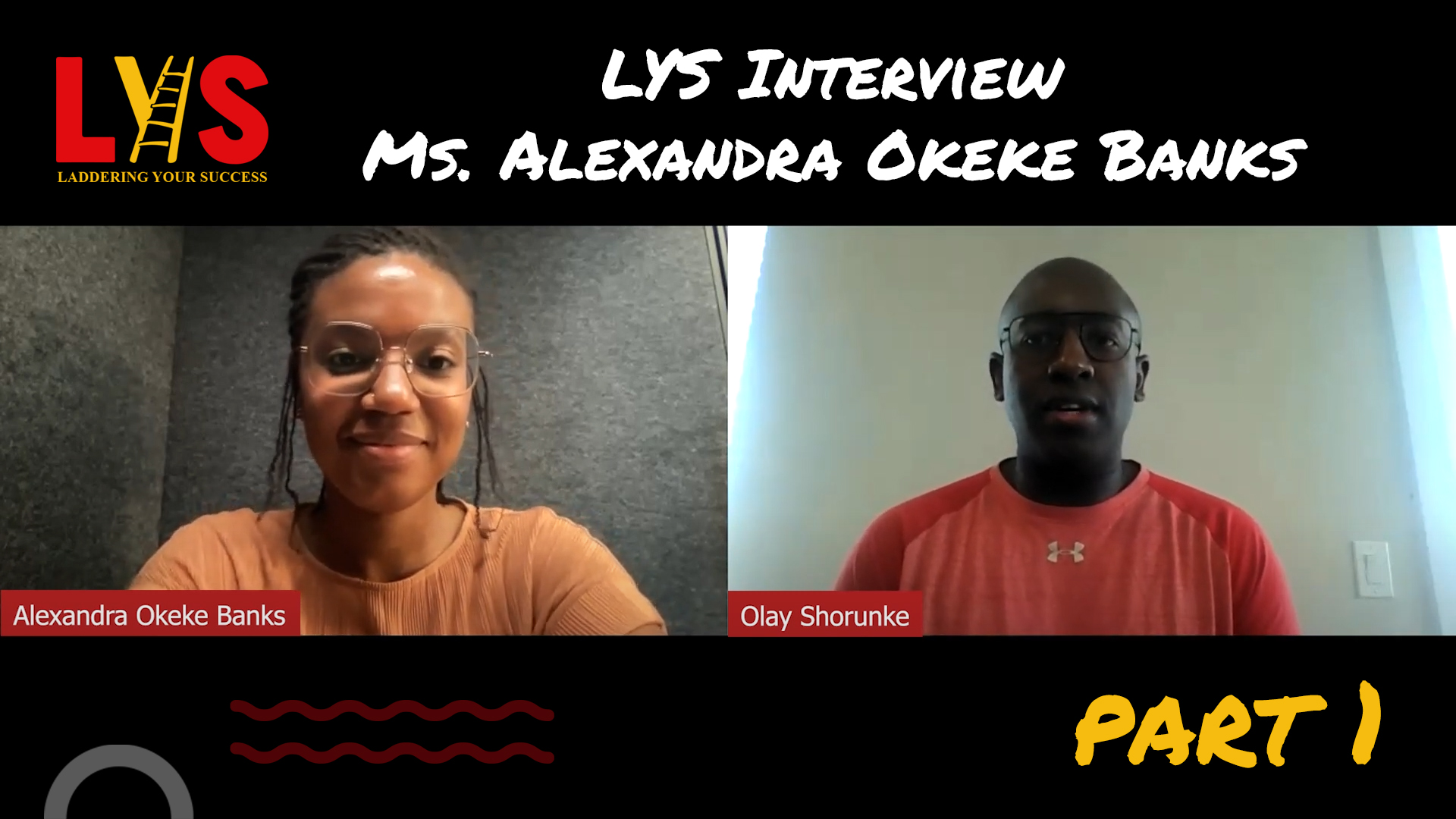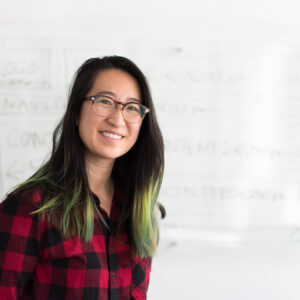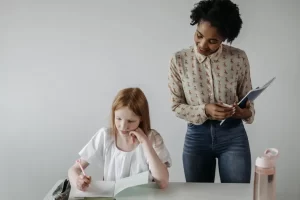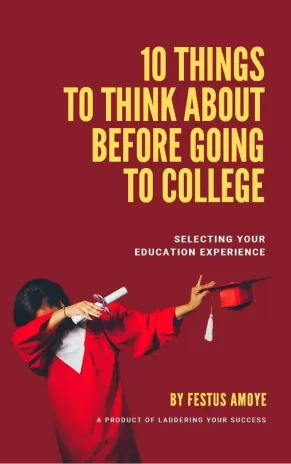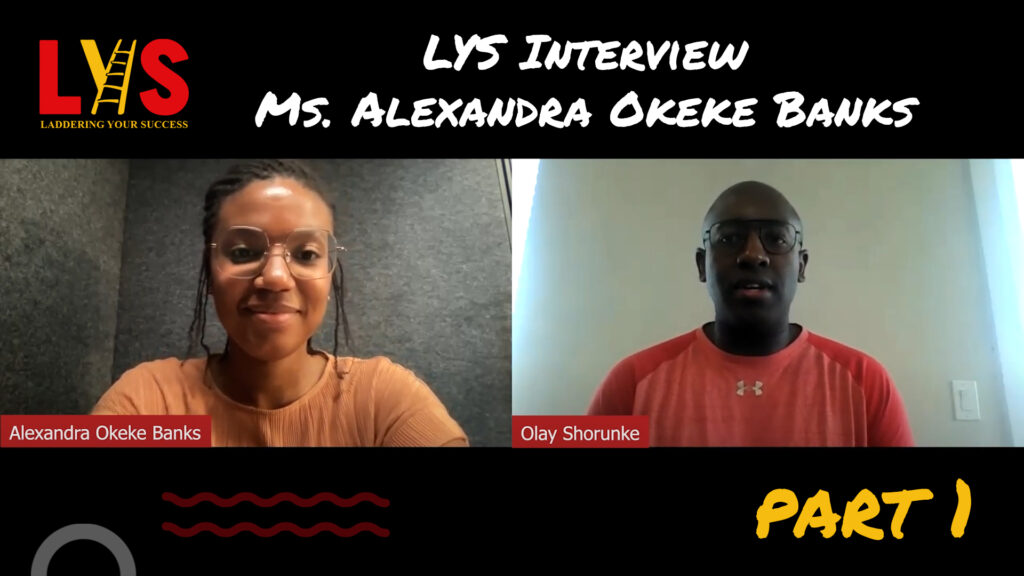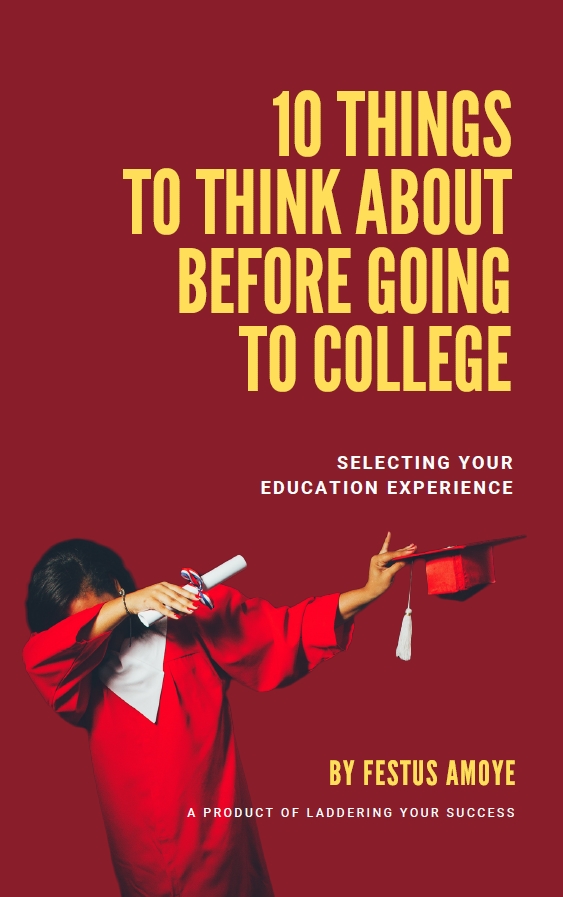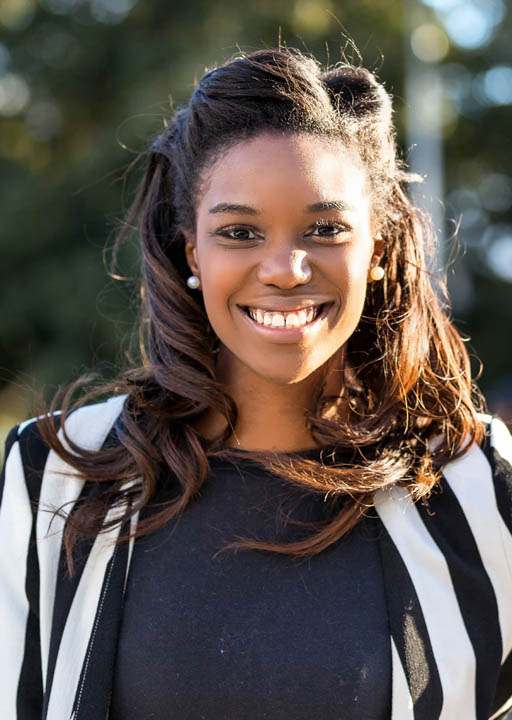Hey there, passionate educator! Mental Health has been a big issue over the last 2-3 years. So we figured why not sit down with a school counselor and ask a few questions. Laddering Your Success’ own Olayinka Shorunke had an opportunity to interview the lovely Mrs. Alexandra Okeke Banks, a licensed school counselor! Always remember, if you want to incorporate SEL, Character, and skills into your lessons, you can use the LYS classroom app. Follow the transcript below for the first part of the interview.
Olay:
Welcome family. I’m so happy you could be here today to join us for a special conversation with Mrs. Alexandra Okeke Banks. We’re so happy to have you with us to talk about the start of the new school year and what we can do to give parents, teachers, and students a great start to the school year.
Alexandra:
Thank you. Thank you for having me.
Olay:
Oh, for sure. Absolutely. Thank you so much for being with us. So go ahead and tell us a little bit about yourself.
Alexandra:
Okay. Well, I am in mental health. I’m a licensed practicing counselor, but I was also a teacher for some time. So I taught for four years. I taught eighth grade while I was getting my master’s. And then, when I graduated with my master’s in clinical mental health counseling, I’ve been doing counseling since. I went from being a teacher in schools to being a counselor in schools, which is a very different type of role for me. And I, I really love it. I really like it.
I like the fact that there are things that I get to address with students that I didn’t get to address as a teacher because, you know, I got a bunch of kids in my class. I have to meet TES all those things. And so yeah, so I’ve been doing that since, and right now I specialize with trauma and multicultural counseling within the education setting and then, of course, you know, anxiety and depression, whatever my kiddos bring in.
Olay:
Awesome. Thank you so much for that. You know, you brought up a really good point when you said you used to be in the classroom, and it’s like a difference in perspective, right? Because you’re, you’re in the classroom, you’re with about 20 to 30 kids, and now you get, look at like a wide scope, so you get to see like so much more, right?
You got to see like a full perspective. So that’s, that’s pretty awesome. Yeah. Thank you so much for that. So without more being said, let’s go ahead and get into some of those questions, right? Yeah.
What are the biggest issues you see students going through right now?
So I think there’s probably something having to do with the social, emotional and learning aspect. One, at least one for each. But in regards to social, you know, a lot of kids nowadays, most of their interactions happen through social media or some type of device and so in general even before the pandemic, we had so many kids that were very like socially awkward or very anxious about being social. And so I think that has just magnified significantly after COVID and, and being able being on lockdown and things like that.
So I’ve had a lot of students who were having panic attacks, anxiety attacks just at the idea of having to be in class, having to answer questions, or having to ask questions, whether it was over Zoom or in person. And so I think a lot of just social anxiety for sure.
And then, you know, anxiety is also related to COVID as adults. A lot of us have been anxious about COVID because we don’t know what it means, you know, or we’re not sure, or there are so many pieces of information that contradict each other, and we’re not exactly sure what’s real and what’s not and all that. And so I think even more so because kiddos don’t have the capacity all the time to process through things. They’ve kind of fed off of parents and family members, anxiety, and fear. And so there’s a lot of kids that just have extreme anxiety about being sick, extreme anxiety about losing family members, and things like that. And so definitely that. And then with the learning aspect, I mean, if you have, you know, we have those, those hierarchies of needs.
If the kids don’t feel safe and they’re not getting what they need emotionally or safety-wise, they can’t learn, you know, that’s just not gonna be there for them. And so I think a lot of our kiddos have been just unable to even taken new information in the classroom or on Zoom and again, with being on Zoom, the kids have a hard time connecting.
You know, you have kids who have not seen other kids in over a year unless it’s their own family members, but you got those only child families too, who haven’t seen kids in just about a year. So that’s been, that’s been rough too. So there’s quite a bit of things, a lot of anxiety, a lot of anxiety, both social and you know, just related to COVID. But as well as that, just inability to learn in the way that they need to just because of the environment.
Olay:
Wonderful. Yes. thank you so much, you know, you were speaking to my soul when you were talking about, I think one of the biggest issues teachers had to deal with was especially with like zoom calls, students that were like, you know, you’re trying to set those expectations, keep your camera on this, that and the third. And you got students who just for whatever reason, refuse.
After so many times, I know talk to a lot of teachers, they’re just like, they won’t keep these cameras on. And so I think that’s a really awesome thing, right? Because you got to take your negatives, and you have to find a way to turn them into positives or you have to try to understand why they’re, why it’s a negative behavior is, you know, like you said, thinking about what the kid’s actually going through, you know, that makes them do that. So I, I thank you so much for that was wonderful.
Alexandra:
Yeah. And you know, another thing I would like to add is just there’s, especially with certain populations in Texas that are, you know, economically disadvantaged or, you know, they just have a lot of family issues being at home is not the most safe or comfortable place for them.
Having to do school at home is, you know, some of them are like, “Nope, not happening!” You know? And so we also have to consider that as some kids come from really rough home situations and their school is their safe place. And so not being able to be at school is extremely overwhelming for them and stressful. And a lot of times, they end up having to endure whatever unhealthy home situation for an extended period of time because of it. And so yeah, they end up coming back to school with just that much more issues.
So what are some things students, parents, and teachers should be looking for in students or children that are dealing with social, emotional learning issues, or just personal issues?
Yeah. So I think, you know, when it comes to being in a school setting, we obviously see that one kiddo who is loud, who has outbursts emotional, you know, screaming, throwing desks, you know, what have you, and has those just very obvious behavioral issues. But I think also it’s really important to consider the quiet kids. And that’s, even as a teacher myself, like I remember being like, oh yeah, he’s a great kid. Well, have you ever heard him speak? Have you ever seen him with other students interacting? Well, no. Okay. Well, you know, why is that?
And so I think not just giving attention to those kids who are kind of screaming for it, but also for the ones that aren’t. And so those are gonna be the kids that are really quiet. The ones that you don’t see interacting, the ones that don’t really wanna speak in class, or the ones that speak under their breath and don’t really think anyone’s listening.
So I think, you know, a lot of times, yeah, we wanna focus on those loud kids, but the quiet ones, you know, definitely need that help and support as well. And I think another thing I would say is just using your intuition a lot of teachers, families, counselors, staff, they’re in, you know, the education field because they feel some type of connection to children in general.
And so I think after, you know, after a year of COVID we can be like, listen, no more, you know, but I think we gotta kind of go back to that original purpose of like connecting with kids and trusting our intuition when it comes to figuring out like what kid is in need. And so, I find that when I tell teachers to do that, they’re like, huh, okay. I have a list of students that I’m thinking of right now because you know, it is a gift to be able to connect with students, and know what’s going on, whether it’s education or emotional or whatever.
But yeah, so I would say also just using intuition as well as trying to check in on those more quiet and kind of invisible, you know, kiddos,
Olay:
I think that’s wonderful. You’re reminding me of a student that I had my second year of teaching, and she was, she was about 5, 6, 5, 7 in the sixth grade. And I remember we did this activity and you know, you would do like Apple or Android or you know, Pepsi Cola. And I think I said, “Would you either do something, something or what, what superpower would you have?”
She would always say, “I want to be invisible”. She would always say that. And I would, I don’t know what it was, you know, like you said, intuition, I remember going to her and just writing something. I was just like, I just wanna let you know that. I know you always say you want to be invisible, but I see, you know, just, you know, something smaller just to let them know that just, and I, it it’s one of those things that helps you build that connection with, with the student and, and you know, it’s like you said, I think that’s gonna be really, really important this year for a lot of students, teachers and parents to, to really measure and, and, and have that connection.
Thanks for following along. If you enjoyed this interview, then we think you may like part two (Click here). If you would like to check out our other articles, please click here.
We at LYS also know the importance of education, and we aim to help you out in making sure that your students receive all the help they need to ladder their success. If you are a parent, an educator, or an administrator, the LYS Classroom App is an excellent tool for supplemental lesson planning. Do you want to try it for free? Link here!

